If There's a Reform of EMU UK's Demands Could Be Considered
Adelina Marini, April 28, 2015
David Cameron's pledge for reform of the EU is not realistic, said in an interview with this website Paulo Rangel (Portugal), a vice president of the EPP group in the European Parliament. According to him, the only possibility for opening of the treaties for change is to upgrade the euro area. Only then the demands of the British prime minster, if he is re-elected, can be taken into account, the MEP added. There will be no treaty change in the foreseeable future. Mr Rangel recalled also the statement of the European Commission president, Jean-Claude Juncker, that he does not foresee treaty change by the end of his mandate which is 2019.
Two scenarios for the UK election
Paulo Rangel, who was invited on several occasions in the British parliament to present his position as a pro-European and a European federalist, sees two possible outcomes from the parliamentary election on 7 May. One is a victory of Cameron's Conservatives but with a clear dependence on Nigel Farage's party - the United Kingdom Independence Party (UKIP). According to the MEP, UKIP's performance will be crucial for Europe and the European Parliament in particular because these elections will reveal the real weight of UKIP who want Britain to leave the EU. Last year, UKIP was the real victor at the European elections. If they significantly improve their result this will have a strong impact on the right wing in the Conservative Party as well as on Cameron's position on Europe. According to Mr Rangel, it would not be important what the percentage score would be for UKIP but how many mandates they will get because this will show whether they will participate in a coalition or would support a possible conservative minority government in parliament.
Another possible outcome, according to the Portuguese MEP, is a victory for the Labour Party but a victory strongly dependent on the mandates of the Scottish National Party (SNP). It is very likely the SNP to receive tens of mandates - 40 or more. If the Scottish nationalists participate in any way in government - through a parliamentary alliance or in a coalition - this will again put the issue of Scotland's independence on the table. This does not necessarily mean a new referendum tomorrow, the Portuguese MEP clarified, but certainly the issue will have a huge impact on the upcoming elections in the Spanish autonomous region of Catalonia in September this year.
Britain is no longer an exception from Europe
If the 7 May election produces a second hung parliament in a row this will mean that the political landscape in Britain had changed. It is not changing but has changed, emphasised Paulo Rangel. This matters a lot for the political landscape in EU because of Front National in France, Alternative for Deutschland, Beppe Grillo's party in Italy, the Podemos movement in Spain, etc. At the moment, the entire political landscape is at stake. Precisely from a point of view of the influence of elections in one country over others Paulo Rangel agrees that elections are no longer a purely national matter. Europe has a huge influence over the British debate and the outcome of the British elections will have a huge impact on EU's future, he said. Their significance is the same as the impact the Greek elections have over the euro area, for instance. He recalled that the 2011 election in Portugal was strongly influenced by the election in Finland. This might be odd, he says, but it proves in the same time that we are much more integrated than we think.
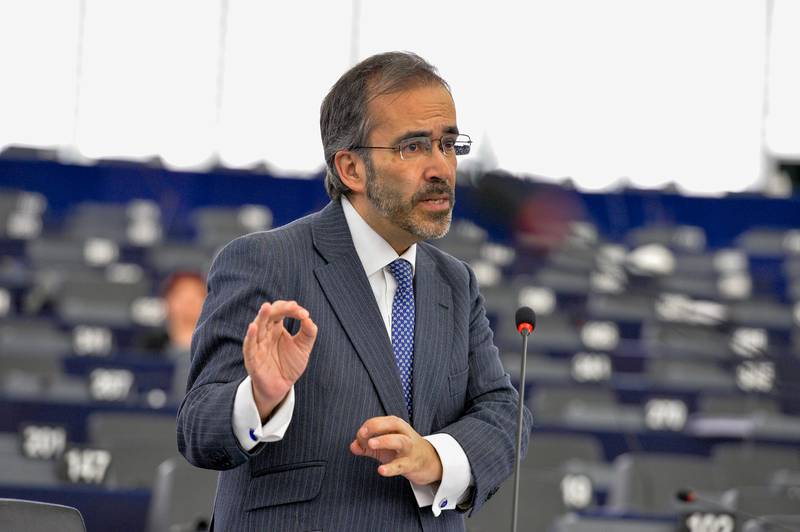 The Portuguese MEP is of the opinion that UKIP is not at all the main factor to blame for the current state of the EU-UK relations. It is a problem but it is not only a British reality but a European reality. British politics is following the outline of the European politics, he added and again pointed to Front National. Some arguments, used by Mr Farage are the same as Ms Marine le Pen's, although the two claim they have nothing in common. Their views often coincide with those of Geert Wilders and Bernd Lucke's from Alternative for Deutschland. So, this is a European not a specifically British problem. These parties received strong support because of the economic and financial crisis but in the same time they have serious issues with identity. And although he understands very well the reasons for the emergence of such political powers, the vice president of the biggest political group in the European Parliament cannot apprehend how easily the British accept the anti-European arguments because the EU does not create problems to the UK. It is quite the opposite, Mr Rangel recalled.
The Portuguese MEP is of the opinion that UKIP is not at all the main factor to blame for the current state of the EU-UK relations. It is a problem but it is not only a British reality but a European reality. British politics is following the outline of the European politics, he added and again pointed to Front National. Some arguments, used by Mr Farage are the same as Ms Marine le Pen's, although the two claim they have nothing in common. Their views often coincide with those of Geert Wilders and Bernd Lucke's from Alternative for Deutschland. So, this is a European not a specifically British problem. These parties received strong support because of the economic and financial crisis but in the same time they have serious issues with identity. And although he understands very well the reasons for the emergence of such political powers, the vice president of the biggest political group in the European Parliament cannot apprehend how easily the British accept the anti-European arguments because the EU does not create problems to the UK. It is quite the opposite, Mr Rangel recalled.
It is understandable a country not to want to be part of the common currency but not to recognise all the economic and financial advantages of the EU membership is quite odd, according to Paulo Rangel. He explains this with the media system in Britain which, in his words, is strongly anti-European, especially the tabloids. EU simply has no charm and influence, according to the majority of British media.
Enhanced role of the national parliaments
Paulo Rangel says that he does not understand what exactly David Cameron wants to reform. One of the pledges in the Conservatives' manifesto, however, is an enhanced role of the national parliaments. Is it possible this to be a threat to the European Parliament? Paulo Rangel does not see such a danger. Even if the capacity and powers of national parliaments are improved this will not necessarily mean a reduction of EP's capacity. What lacks on both levels - European and national - is parliamentary control. Life today is very complicated, the public administration, too, which is why it is very hard to exercise such control. It is not like in our democracies of the 19th and 20th century. It is not a problem to improve the role of the national parliaments but everything depends on the model that will be chosen. Hardly such a change can be realised without a treaty change. For the national parliaments to have stronger role this would mean to create a special chamber where they can be represented, but that requires treaty change.
Is there a plan B in case of a Brexit?
EU should have such a plan but in the end of the day no one actually believes that the UK will leave the EU, says Paulo Rangel. Some non-papers and confidential papers were developed around the independence referendum in Scotland to see what will be the legal context of a possible Scottish exit. Such analyses are being made now for Greece. A Brexit would be devastating for the British economy. It will be a major blow for the EU as well which will have to create new regulations to cope with the new situation. However, the London City will suffer the most, the Portuguese MEP believes. He was an optimist, though, that it would not come to such a scenario.
*You can watch the entire interview in the attached video file in English language
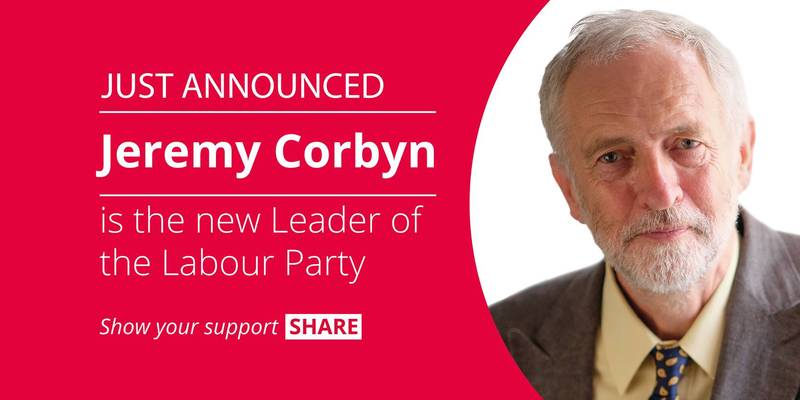 Jeremy Corbyn | © Labour
Jeremy Corbyn | © Labour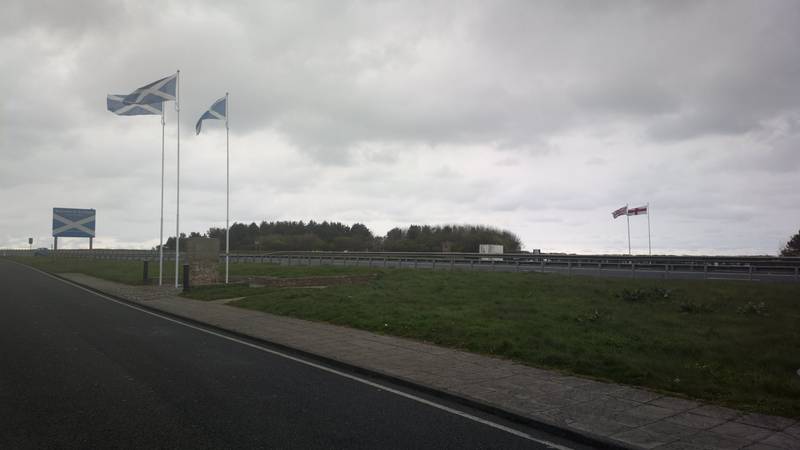 | © euinside
| © euinside Angela Merkel, Emmanuel Macron | © Council of the EU
Angela Merkel, Emmanuel Macron | © Council of the EU Benoit Coeure | © Council of the EU
Benoit Coeure | © Council of the EU Pierre Moscovici | © Council of the EU
Pierre Moscovici | © Council of the EU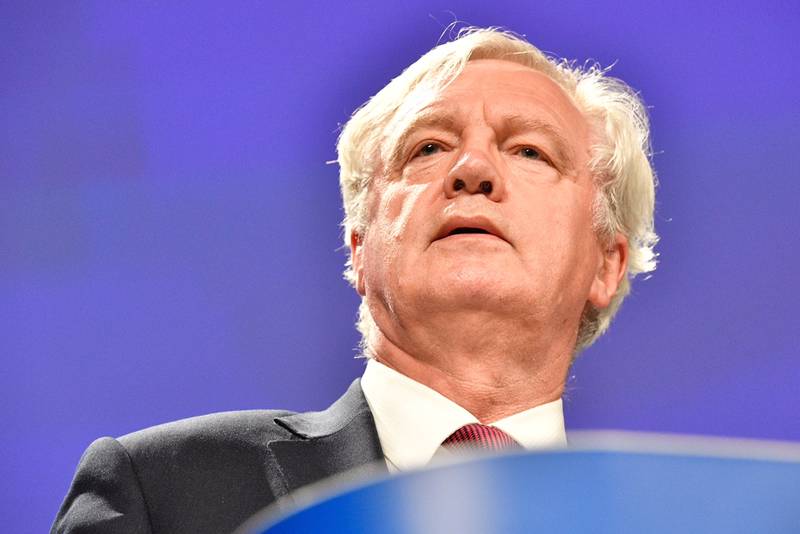 David Davis | © European Commission
David Davis | © European Commission Angela Merkel | © Council of the EU
Angela Merkel | © Council of the EU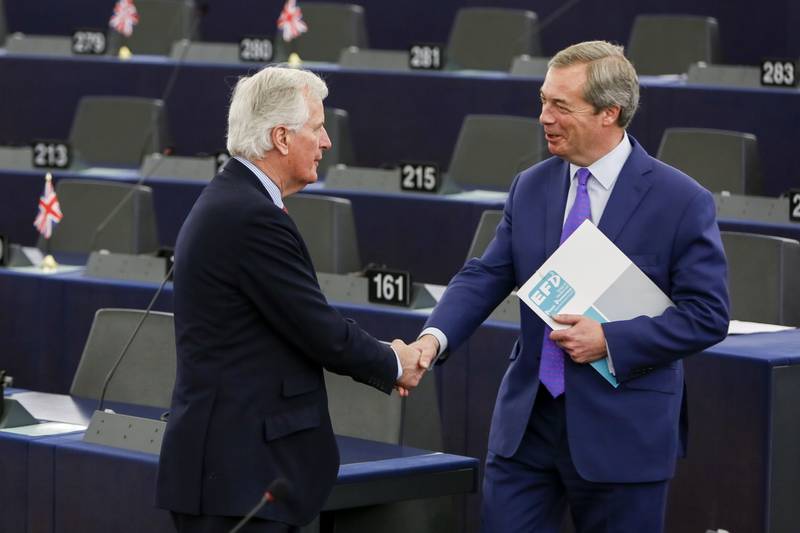 Michel Barnier, Nigel Farage | © European Parliament
Michel Barnier, Nigel Farage | © European Parliament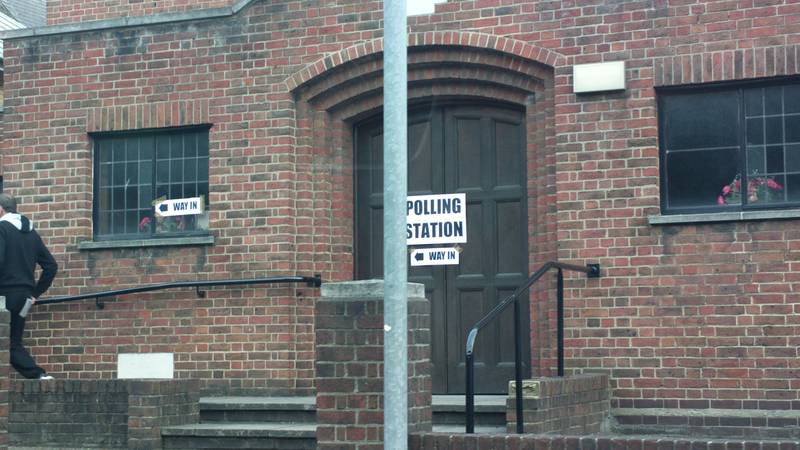 | © euinside
| © euinside